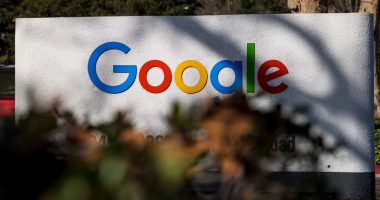
NEW YORK—China’s new envoy to the U.S. struck a conciliatory note upon his arrival in Washington on Wednesday, pledging to repair the increasingly testy relationship between the two world powers days after Chinese Foreign Ministry officials greeted a visiting senior State Department official with a chilly lecture on diplomacy.
Qin Gang, a veteran diplomat and trusted aide to President Xi Jinping, said in remarks posted on the website of China’s embassy in the U.S. that he will “endeavor to bring China-U.S. relations back on track, turning the way for the two countries to get along with each other…from a possibility into a reality.”
His tone contrasted sharply with the tense exchange between senior Chinese and U.S. diplomats in the port city of Tianjin on Monday, when a Chinese vice foreign minister gave U.S. Deputy Secretary of the State Wendy Sherman an earful, saying Washington was entirely to blame for the souring bilateral relationship.
The more placating remarks by Mr. Qin—in which he said he would “seek to build bridges of communication and cooperation with all sectors of the U.S.”–show that Beijing still hopes to reset relations with Washington—but on its own terms.
In a commentary that roughly coincided with Mr. Qin’s remarks, China’s official Xinhua News Agency urged the U.S. to “discard its habitual bullying of China.”
Relations between the U.S. and China have continued to deteriorate after having plummeted during the Trump administration. President Biden has been trying to build alliances to confront a more self-confident and assertive China on issues as diverse as human rights, technology and geopolitics, while Mr. Xi is intent on reshaping the relationship as one between two head-on competitors.
The chasm was on full display Wednesday. U.S. Secretary of State Antony Blinken met a representative of the Dalai Lama while visiting New Delhi, a move bound to further anger Beijing, which sees the Tibetan spiritual leader as a separatist. Meanwhile, Chinese Foreign Minister Wang Yi met with the Taliban in a high-profile meeting that signaled Beijing’s intention to step in diplomatically as American troops withdraw from Afghanistan.
The Wall Street Journal reported Beijing’s plan to appoint Mr. Qin as U.S. envoy in April.
One of his tasks in Washington will be to help restore regular, high-level meetings between the two sides. The so-called strategic-dialogue format was first put in place during the George W. Bush administration, but was abolished by the Trump administration as an exercise that tied up the U.S. in fruitless discussions.
With the relationship becoming more competitive, Beijing sees the mechanism as a stabilizer to reduce chances of conflict. So far, the Biden team has shown no interest in re-establishing the talks.
Within China, Mr. Qin, 55 years old, is seen as a polished career diplomat—and one who has earned Mr. Xi’s trust. Since joining the Foreign Ministry in 1988, he has worked his way up from a junior aide to the ministry’s spokesman, before becoming a vice minister responsible for overseeing European affairs and news as well as planning events for Mr. Xi.
When Mr. Xi gave former President Trump and his wife Melania a tour of the Forbidden City during Mr. Trump’s state visit to China in late 2017, Mr. Qin was right by the side of the Chinese leader.
Still, some within the Biden administration view Mr. Qin as a hawk, pointing to his remarks early this year in which he called those smearing China “evil wolves.” And unlike his predecessor, Cui Tiankai, who had served as Beijing’s envoy for eight years and built relationships in the U.S. capital, Mr. Qin has no previous experience in Washington.
Mr. Qin faces a stiff challenge in representing Beijing’s stance while still building bridges with a Washington that is exhibiting rare bipartisan unity in its hard-line stance toward China.
He nevertheless struck an optimistic note in his first remarks after arriving in Washington. “China and the U.S. are entering a new round of mutual exploration, understanding and adaptation,” he said.
Write to Lingling Wei at [email protected]
Copyright ©2021 Dow Jones & Company, Inc. All Rights Reserved. 87990cbe856818d5eddac44c7b1cdeb8
Appeared in the July 29, 2021, print edition as ‘Envoy to U.S. Seeks To Reset Relations.’









